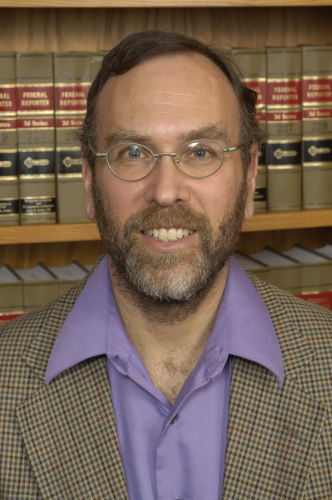Jun 14, 2013
DePaul law professor says Supreme Court’s DNA ruling promotes research and diagnosis
DePaul law professor says Supreme Court’s DNA ruling promotes research and diagnosis
CHICAGO—In deciding Association for Molecular Pathology v. Myriad Genetics, Inc., which has huge implications for medical research and diagnosis, the U.S. Supreme Court ruled that isolated human genes are not an invention because they occur naturally, and therefore cannot be patented. Joshua Sarnoff, a law professor at DePaul College of Law and director of DePaul’s Center for Intellectual Property Law and Information Technology joined with other intellectual property law and constitutional law professors to file amicus briefs in the case. Here is his view on the decision:
“As I noted in amicus briefs filed in the District Court and the Court of Appeals on behalf of the American Medical Association and other medical organizations that focus on genetics, the decision will free researchers, clinicians, and the public to perform research and diagnosis without restriction to use of Myriad’s (or other patent holders’) laboratories (including for important second opinions by independent laboratories), said Sarnoff. “It also will allow competition in diagnosis, and thus avoid the monopoly prices that Myriad charges for its diagnostic services, not just for breast cancer but for all medical conditions having potential genetic links. The decision also will promote additional research and diagnosis through the creation of a public database of information on mutations, which currently Myriad possesses as a trade-secret, access-restricted database that it was able to create from its ability to direct all genetic testing to its own laboratories.
The decision also is significant because the Court categorically reaffirmed that products of nature are not the kind of thing that Congress intended to be subject to private ownership through patent rights, and that mere isolation from nature is not sufficient to change the nature of those products into human ‘inventions’ Although the Court may not have provided a sufficiently clear line to distinguish natural products from human inventions, and I think improperly authorized as patent eligible synthetic ‘cDNA’ that remove the non-coding DNA regions but otherwise have the same sequences as naturally occurring chromosomal DNA, it clearly rejected the asserted “reliance” interests of the plaintiffs and others in investments made to seek these patents given that the Patent Office has issued patents on isolated DNA sequences for many years. As the Court stated, those concerns are for Congress, where we can now expect biotechnology and pharmaceutical and chemical patent owners to turn next, and we may (if legislation to overturn the decision is forthcoming) then confront the Constitutional issues that I raised in my Supreme Court brief.”

Joshua Sarnoff is a law professor at DePaul College of Law and director of DePaul’s Center for Intellectual Property Law and Information Technology. He believes the U.S. Supreme Court’s decision in Association for Molecular Pathology v. Myriad Genetics, Inc., has huge implications for medical research and diagnosis. Sarnoff joined with other intellectual property law and constitutional law professors to file amicus briefs in the case.
